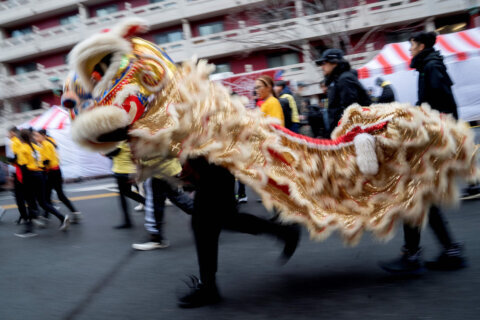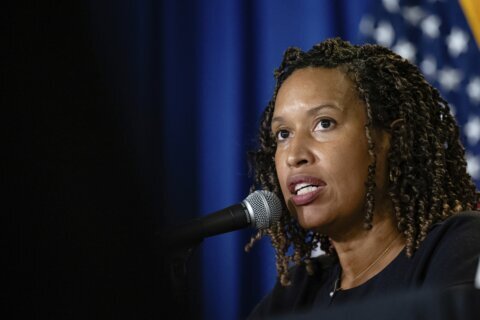A partnership between Monumental Sports and KultureCity, a nonprofit that advocates for sensory inclusion, is expanding accessibility at Capital One Arena so people with sensory challenges can enjoy large events — with tools at hand in the event of a sensory overload.
“The first thing is training, which is the most important step,” KultureCity co-founder Dr. Julian Maha told WTOP.
Maha said the venue certification process included training for at least half of Capital One Arena’s staff members who interact with the public.
“We trained a bare minimum of 50% of the front-facing staff at Capital One Arena about what sensory needs are, why they should care about it, what to do when they see a guest with potential sensory needs, and what the arena is doing to provide services to these guests,” Maha said.
After the hourlong computer-based training, “they are officially certified. It’s a certification that can be placed on their resume,” Maha said.
The number of people who experience sensory challenges is rising, Maha said.
“One in six individuals have a sensory need. So this is anyone from a military veteran or anyone that has PTSD, to autism, to ADHD, to dementia, to Parkinson’s. All of them have the common denominator about having an invisible disability — and also the fact that they have sensory needs.”
“Sensory needs are basically … when they go to a venue like Capital One Arena, the sounds, the lights, the crowds, sometimes even the smells are not only overwhelming, but also physically painful. So, by and large, a lot of these people they’re kind of not engaged [in large community events] primarily not because of choice, but purely because of circumstance.”
Such accommodations can allow freedom for folks with sensory issues to engage with their communities again, Maha said, while noting, “it’s one of the fastest growing demographics in the United States today,” and said around one in six people experience life with a sensory issue.
In addition to employees being trained to look out for individuals with sensory issues, when guests arrive at Capital One Arena, most entryways will have decals that indicate it’s a sensory inclusive venue. Guests can ask employees where to find accommodation tools which include sensory bags with noise canceling headphones and fidget tools to manipulate.
“And they’re all designed to block out extraneous external stimuli so that you can kind of attend to the event that you’re there to see,” Maha said.
Also tucked in the sensory bags: verbal cue cards, which are known as feeling thermometers.
“If you are in a sensory overload, sometimes words can be difficult, so that way you can actually pinpoint exactly what you need.”
Guests can also download KultureCity’s free Sensory Inclusive App to learn more about the accommodations at Capital One Arena, what to expect during events, and where to find the sensory bags and the venue’s quiet room.
“It’s basically a space where you can go and take a little break and then kind of compose yourself, re-center yourself and then come back out and enjoy the rest of the event.”
Maha said these kinds of accommodations at large venues expands the definition of accessibility.
“When we think of accessibility, we as a community normally equate accessibility with the physical … We often forget that accessibility encompasses those with invisible disabilities. Since sensory needs are the common denominator in the challenge with those with invisible disabilities, this is groundbreaking because now we’re rethinking accessibility, redefining it, and reaching out to a large population of those that have invisible disabilities and sensory needs.”
Capital One Arena is joining Nationals Park, which is also a sensory inclusive large venue in the D.C. area.
Other sensory inclusive locations throughout the area can be found on KultureCity’s Sensory Inclusive App.







